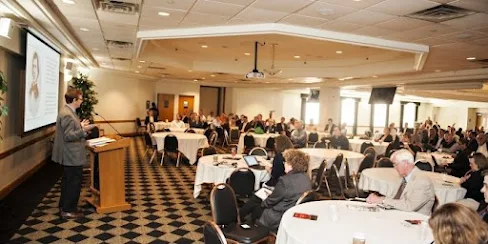In addition to law and language generally, this blog explores philosophy, translation, poetry (including my own poetry and translations), legal education reform, genealogy, rhetoric, politics, and other things that interest me from time to time. I consider all my poems and translations flawed works in progress, tweak them unpredictably, and consider the latest-posted versions the latest "final" forms. I'd enjoy others' thoughts on anything posted. © Harold Anthony Lloyd 2024
Sunday, January 28, 2024
The Arc Continues: Disdaining Langdell From Law Student to Law Professor
Sunday, January 14, 2024
Langdell and the Eclipse of Character
Abstract
Christopher Columbus Langdell has not only damaged the study of law with his three follies: his legal formalism, his redacted appellate case method, and his notion that legal practice taints the professor of law. His three follies have also impaired character development critical for legal actors. This Article focuses on four such critical character traits and virtues impaired by Langdell: (i) imagination, (ii) empathy, (ii) balance, and (iv) integrity. Readers wishing to explore virtues beyond those addressed in this Article might note my earlier examination of the role of virtue in good legal analysis found here.
This Article also calls out potential character issues with two professor types inspired by Langdell: (v) the hazing professor who confuses intellectual rigor with intense discomfort and who uses the redacted appellate case method to inflict such discomfort at the expense of better pedagogy, and (vi) the professor without substantial practice experience who is substantially paid to teach what she has never practiced.
Agreeing with C.S. Pierce that the best argument is a cable rather than a chain, I end by weaving in a Langdell villanelle (from my Apology Box also shared on this Blog) to supplement the prose. I hope such a cable can help lift Langdell and his follies from legal education and the world.
This Article can be downloaded here.
Keywords: Langdell, law school reform, legal education reform, virtue, imagination, empathy, balance, integrity, hazing, experience, translation, formalism, character, concept, category, metaphor
Saturday, May 7, 2022
Balancing Freedom and Restraint: The Role of Virtue in Legal Analysis
Abstract
Even if one sees the law as “a self-contained system of legal reasoning” from which we deduce “neutral,” non-political conclusions from “general principles and analogies among cases and doctrines” (including formalist claims that judges simply call “balls and strikes” like umpires in a baseball game), one should still consider certain characteristics of the party making such deductions or calling such “balls and strikes.” [Relevant citations to quoted language are in the Article.] If such decision maker has questionable motivations, lacks proper perspective, does not grasp the flexibility in the concepts in play, does not grasp the restraints on concepts in play, does not follow the proper processes involved, and lacks the detail, courage, and tenacity needed to reach the proper “deduction” or “call,” on the face of things the formalist, too, should have reason to re-examine any “deduction” or “call” by such party. Thus, even the formalist should not deny the critical role of virtue when examining legal analysis, a role belying the notion of law as a "self-contained system of legal reasoning."
This Article thus explores basic freedoms and restraints applicable to legal analysis and the role that virtue plays in balancing such freedoms and restraints. Such exploration covers: (i) the origin, nature, and purpose of concepts and categories used in legal analysis; (ii) the experiential nature of the meaning of such concepts and categories used in legal analysis; (iii) the freedoms and restraints applicable to such concepts and categories as a result of either experience or of the concepts or categories themselves; (iv) how workable notions of virtue rightly balance such freedoms and restraints in legal analysis; (v) the distinction between such virtue and skill; (vi) reconceiving the analytically virtuous mean as a proper balance between such applicable freedoms and restraints; and (vii) defining and surveying the particular virtues that lead us to such proper balance and thus to good legal analysis. My hope is that lawyers and law schools in their curricula will follow such explorations as well in a quest to better understand legal analysis and how to teach and perform it well.
Download the full text of this article here.
Keywords: legal analysis, virtue, skill, formalism, character, phronesis, concept, category, hermeneutic pragmatism, Peirce, Rorty, Putnam, deduction, induction, semiotics, legal education, rhetoric
Sunday, December 6, 2020
My Common Thread
Though the subject matters of my writing may seem quite diverse, there is a common thread. What is it?
That common thread is a hermeneutic pragmatism which explores meaning that is workable (morally and otherwise) through time as more particularly set forth in (for example) my "Making Good Sense: Pragmatism’s Mastery of Meaning, Truth, and Workable Rule of Law." As a philosopher and experienced lawyer, I explore "diverse" matters which on closer examination uniformly involve hermeneutic pragmatism for proper analysis. Such matters include the inseparability of theory and practice in law and life; workable semiotics (including semantics, hermeneutics, and pragmatics) in law and life; originalist claims as to interpretation and construction; conceptual metaphor in law and life; the cognitive nature of emotion in law and life; the role of virtue in legal and other analysis; the interrelation of law and the humanities (including classical rhetoric and parallels between lawyers and poets); and the need for legal education reform consistent with thoughtful explorations of the matters set forth above.
Saturday, June 11, 2016
Confucius and Lao Tzu (Additions to "The Apology Box")
Thursday, June 9, 2016
Snow In August (A Book of Original Verse)
She had enjoyed sweet certain knowledge that,
however hot the summer, August brought
its welcome snows upon a boundary fence
that she had kept to please her neighbors, too.
Monday, June 6, 2016
I Mined and Shared from Matchless Mines of Me: Two Sonnets of Job (Apology Box Additions)
Saturday, June 4, 2016
Finding Wisdom in a Fractured World
We need to discuss the nature of wisdom more than we do. If we can’t articulate at least some measure of what it means to be wise, how can we justify any notion of the good life or of the good society? At this particularly-difficult time when our country seems fractured down the middle, how can we not focus on the nature of wisdom?
Sunday, May 29, 2016
Sewing & Sowing Words
Saturday, May 21, 2016
Religious Hypocrites and Their Timeless Tactics: McCrory, Tartuffe, and HB 2
Pat McCrory’s HB 2 reminds me of Molière’s Tartuffe. In both cases unwitting victims are fleeced by people pretending to be virtuous. Tartuffe fleeces a wealthy man named Orgon. With HB 2, Pat McCrory fleeces every worker of employment protections including the right to sue in state court for discrimination based on “race, religion, color, national origin, age, sex or handicap.” (Those still doubting that please click here.) In both cases, the same ancient three-part strategy is used against unwitting victims who can admire (at least at first) the very man that fleeces them. Using Molière’s classic tale to explore this ancient strategy not only arms us against the McCrorys of the world. It also reminds us how classics not only entertain but teach and prepare us as well. Please follow me—this won’t take long. Click here.
Saturday, May 7, 2016
Cincinnatus: The Other Political Archetype
As we watch today's political nastiness, we should remember there is a better political archetype. There is the Cincinnatus figure who serves out of duty when he'd rather be doing something else. In the legendary case of Lucius Quinctius Cincinnatus (who died ca. 438 B.C.) that something else was farming which he twice abandoned out of duty to serve. Can we not find such persons today to serve? Perhaps wanting a political office should in itself be disqualifying. Perhaps at Judgment Day all good politicians will speak as I imagine Cincinnatus speaking at his Judgment Day in this sonnet I have written:







